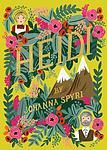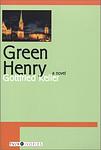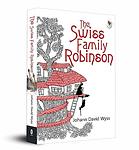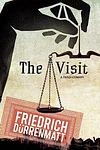The Greatest Peruvian, Swiss Books of All Time
Click to learn how this list is calculated.
This list represents a comprehensive and trusted collection of the greatest books. Developed through a specialized algorithm, it brings together 300 'best of' book lists to form a definitive guide to the world's most acclaimed books. For those interested in how these books are chosen, additional details can be found on the rankings page.
Genres
Countries
Date Range
Reading Statistics
Click the button below to see how many of these books you've read!
Download
If you're interested in downloading this list as a CSV file for use in a spreadsheet application, you can easily do so by clicking the button below. Please note that to ensure a manageable file size and faster download, the CSV will include details for only the first 500 books.
Download-
1. I'm Not Stiller by Max Frisch
The book is a profound exploration of identity and the human condition, revolving around a man who is arrested upon his return to his home country, Switzerland, after spending time in America. Although he insists he is not the man, Stiller, that everyone believes him to be, his protests are ignored. The story unfolds as he writes in his prison cell, reflecting on his past life and relationships, and grappling with the question of who he truly is. It's a thought-provoking narrative that challenges conventional notions of selfhood and personal identity.
-
2. The War of the End of the World by Mario Vargas Llosa
The book is a historical novel that recounts the War of Canudos, a conflict in late 19th-century Brazil over religious fanaticism, political instability, and social inequality. The story is centered around an apocalyptic movement led by a charismatic, messianic figure who convinces the poor and downtrodden to rise up against the Brazilian government, leading to a brutal and bloody conflict. The book explores themes of faith, power, poverty, and the destructive potential of fervent belief.
-
3. Jakob Von Gunten by Robert Walser
This novel is a first-person account of a young man who leaves his privileged life to enroll at a school for servants in Berlin. The protagonist's observations and experiences in the school, his interactions with the headmaster and other students, and his internal struggles and reflections form the crux of the story. The narrative, imbued with irony and dark humor, explores themes of power, submission, individuality, and the absurdity of societal norms and expectations.
-
4. Heidi by Johanna Spyri
"Heidi" is a heartwarming tale about a young orphan girl named Heidi who is sent to live with her grumpy grandfather in the Swiss Alps. Despite the initial challenges she faces, Heidi's pure and joyful spirit brings warmth and happiness to the people around her. Through her adventures and friendships, Heidi learns important lessons about love, resilience, and the beauty of nature.
-
5. Green Henry by Gottfried Keller
"Green Henry" is a semi-autobiographical novel that chronicles the life of a young man who dreams of becoming a painter but faces countless obstacles on his journey. The protagonist leaves his Swiss village and travels to Munich to study art, but his lack of discipline and financial difficulties force him to return home. After his mother's death, he begins to reassess his life and eventually finds his place in society. The novel explores themes of identity, ambition, and the struggle between individual desires and societal expectations.
-
6. Memories, Dreams, Reflections by Carl Jung
This book is an autobiography of a renowned psychologist who shares his life experiences, insights, and the development of his theories. The narrative delves into his childhood, his career, his relationship with Sigmund Freud, and his exploration into the human psyche. It also provides an in-depth look at the author's dreams and visions, which greatly influenced his work, and his thoughts on subjects such as life after death, reincarnation, and the collective unconscious.
-
7. Belle du Seigneur by Albert Cohen
"Belle du Seigneur" is a tragic love story set in the 1930s, revolving around a high-ranking Jewish official who works for the League of Nations and his passionate affair with a married Swiss aristocrat. The narrative delves deep into their intense relationship, exploring themes of obsession, self-destruction, and existential despair, all set against the backdrop of the impending Second World War. The novel is also notable for its satirical portrayal of diplomatic life and its exploration of Jewish identity.
-
8. Adolphe by Benjamin Constant
"Adolphe" is a semi-autobiographical novel that tells the story of a young man, Adolphe, who falls in love with an older woman, Ellénore. The novel explores the complexities and consequences of their illicit love affair, as Adolphe struggles with his feelings and societal expectations. The story delves into themes of love, power, freedom, and the individual versus society, offering a profound psychological and moral insight into human nature.
-
9. Homo Faber by Max Frisch
"Homo Faber" is a novel about a man named Walter Faber, a highly rational and logical Swiss engineer who believes strongly in technology and progress. His life is turned upside down when he survives a plane crash in the Mexican desert, falls in love with a young woman who turns out to be his daughter, and then loses her to a tragic death. This series of events forces him to question his faith in technology and confront the irrationality of life.
-
10. Conversation in the Cathedral by Mario Vargas Llosa
Set in mid-20th century Peru, "Conversation in the Cathedral" is a complex narrative that explores the corruption, decay, and turmoil of the society under the dictatorial rule of Manuel A. Odria. The story mainly revolves around two characters - a wealthy newspaper owner's son and his family's former chauffeur. Their chance meeting leads to a lengthy conversation that unravels the intricate web of political and personal corruption, disillusionment, and lost dreams in their lives and in their country. The novel is a profound examination of the power dynamics, societal decay, and the human condition in a politically oppressive environment.
-
11. The Feast of the Goat: A Novel by Mario Vargas Llosa
"The Feast of the Goat" is a historical novel set in the Dominican Republic during the rule of dictator Rafael Trujillo. It follows the story of Urania Cabral, a successful lawyer returning to her homeland after 30 years of self-imposed exile, and her struggle to confront the traumatic past that led to her departure. The narrative alternates between Urania's personal story and the brutal regime of Trujillo, providing a stark depiction of political tyranny and its effects on individual lives.
-
12. The Time of the Hero by Mario Vargas Llosa
"The Time of the Hero" is a novel set in a military academy in Lima, Peru, where a group of cadets try to maintain their individuality and resist the dehumanizing military routine. The story revolves around a stolen exam paper, the ensuing investigation, and the brutal fallout. The novel explores themes of power, corruption, and the struggle for identity within a rigid and oppressive system, offering a critical look at the military institution and its effects on society.
-
13. Aunt Julia and the Scriptwriter by Mario Vargas Llosa
The novel is a semi-autobiographical tale of a young man in Peru who falls in love with his divorced aunt, Julia, while working at a radio station. Their scandalous romance unfolds amidst the backdrop of a chaotic radio station run by a brilliant but unstable Bolivian scriptwriter who churns out daily soap operas. The narrative alternates between the protagonist's real life and the melodramatic world created by the scriptwriter, blending reality and fiction in a humorous and poignant exploration of love and creativity.
-
14. On Death and Dying by Elisabeth Kübler-Ross
This groundbreaking book explores the five stages of grief experienced by terminally ill patients. The author, a Swiss-American psychiatrist, introduces the concept of the five stages: denial, anger, bargaining, depression, and acceptance, which has since been universally recognized and applied in various fields. The book is based on the author's series of interviews with dying patients, providing an empathetic and insightful look into the emotional and psychological experiences of those facing death.
-
15. Moravagine by Blaise Cendrars
The novel follows the adventures of an eccentric, violent, and mentally unstable protagonist who is released from an asylum by his psychiatrist. The pair embark on a chaotic journey across Europe and America, encountering a variety of strange and often dangerous situations. The narrative explores themes of insanity, violence, and the human condition, offering a dark and surreal critique of modern society.
-
16. Swiss Family Robinson by Johann David Wyss
This classic novel follows the adventures of a Swiss family who are shipwrecked on a deserted tropical island. Through ingenuity, hard work, and family cooperation, they overcome the challenges of isolation and the dangers of an unknown environment. The story showcases their efforts to build a new life for themselves, exploring and adapting to their surroundings, discovering new plants and animals, and creating a home filled with love and learning. It is a tale of survival, resourcefulness, and the strength of the human spirit in the face of adversity.
-
17. The Pledge by Friedrich Dürrenmatt
This book is a gripping crime story that delves into the complexities of human nature and the limitations of the justice system. It follows the journey of a retired police detective who becomes obsessed with solving the murder of a young girl, promising the victim's parents to find the perpetrator. As he delves deeper into the investigation, his methods become increasingly unconventional, straying from standard police procedure and relying instead on a meticulously crafted plan to catch the killer. The narrative challenges the conventional detective story format, exploring themes of obsession, the unpredictability of life, and the moral ambiguities of justice, ultimately questioning whether the ends justify the means in the pursuit of truth.
-
18. Man in the Holocene by Max Frisch
The book is a narrative about an elderly man who, isolated in his home during a rainstorm in the Swiss Alps, reflects on his life, mortality, and the human condition. The protagonist spends his time reading encyclopedic entries and clipping them to his wall, creating a mosaic of human knowledge and history. The narrative is interspersed with these entries, presenting a blend of fiction and non-fiction, and exploring themes of memory, time, and the fleeting nature of human existence.
-
19. The Black Spider by Jeremias Gotthelf
"The Black Spider" is a chilling and haunting tale set in a small Swiss village. It tells the story of a pact made with the devil by the villagers' ancestors, resulting in a curse that manifests in the form of a black spider. As the spider spreads terror and death, the villagers must confront their own sins and grapple with the consequences of their forefathers' actions. This dark and atmospheric novella explores themes of guilt, redemption, and the destructive power of evil.
-
20. A World for Julius by Alfredo Bryce Echenique
"A World for Julius" follows the life of Julius, a young boy from a wealthy, aristocratic family in Peru. The novel is a biting social critique of the Peruvian upper classes, as seen through the eyes of Julius, who is often at odds with his family's values and lifestyle. The narrative explores themes of class, privilege, and the struggle for identity in a world dominated by wealth and social status.
-
21. Deep Rivers by José María Arguedas
"Deep Rivers" is a novel that follows the life of a young boy who is caught between the Spanish and indigenous cultures of Peru. The protagonist is sent to a Catholic boarding school, where he experiences the harsh realities of social and racial divisions within the country. As he navigates these challenging circumstances, he develops a deep connection with the indigenous Andean culture and its spiritual relationship with nature. The novel is a profound exploration of identity, culture, and the struggle of indigenous peoples in a colonized society.
-
22. Broad and Alien is the World by Ciro Alegría
"Broad and Alien is the World" is a novel that explores the harsh realities of life for indigenous people in the Peruvian Andes under the oppressive rule of landowners. The story follows the struggles and ultimate downfall of the Rucas family as they resist the exploitation and abuse from those in power. The narrative is a poignant critique of the social injustices faced by indigenous communities and their fight for survival and dignity.
-
23. The Judge and His Hangman by Friedrich Dürrenmatt
This book is a crime novel set in Switzerland, where a police lieutenant is tasked with solving the murder of his former colleague. The narrative explores themes of justice, revenge, and the blurred lines between good and evil. The lieutenant, despite being terminally ill, is determined to solve the case and in the process, he uncovers a web of corruption and deceit that forces him to question his own morality and the nature of justice. The story is a philosophical examination of the criminal justice system and the moral dilemmas faced by those who enforce the law.
-
24. The Complete Poetry of César Vallejo by César Vallejo
This comprehensive collection showcases the unique and profound poetry of a renowned Peruvian writer, encompassing his entire body of work. The poet's themes often revolve around love, death, and the human condition, reflecting his deeply held political beliefs and personal experiences. His innovative use of language and form revolutionized Latin American poetry, making this collection an essential read for anyone interested in modernist literature.
-
25. Trilce by César Vallejo
"Trilce" is a groundbreaking collection of 77 avant-garde poems that explore the complexities of human existence and emotions. The work is known for its innovative use of language and form, challenging traditional poetic norms. It delves into themes of love, death, and existential angst, while also reflecting on the author's personal experiences, including his struggles with poverty and his political beliefs. The poems are characterized by their intense imagery, complex syntax, and a sense of deep melancholy.
Reading Statistics
Click the button below to see how many of these books you've read!
Download
If you're interested in downloading this list as a CSV file for use in a spreadsheet application, you can easily do so by clicking the button below. Please note that to ensure a manageable file size and faster download, the CSV will include details for only the first 500 books.
Download























